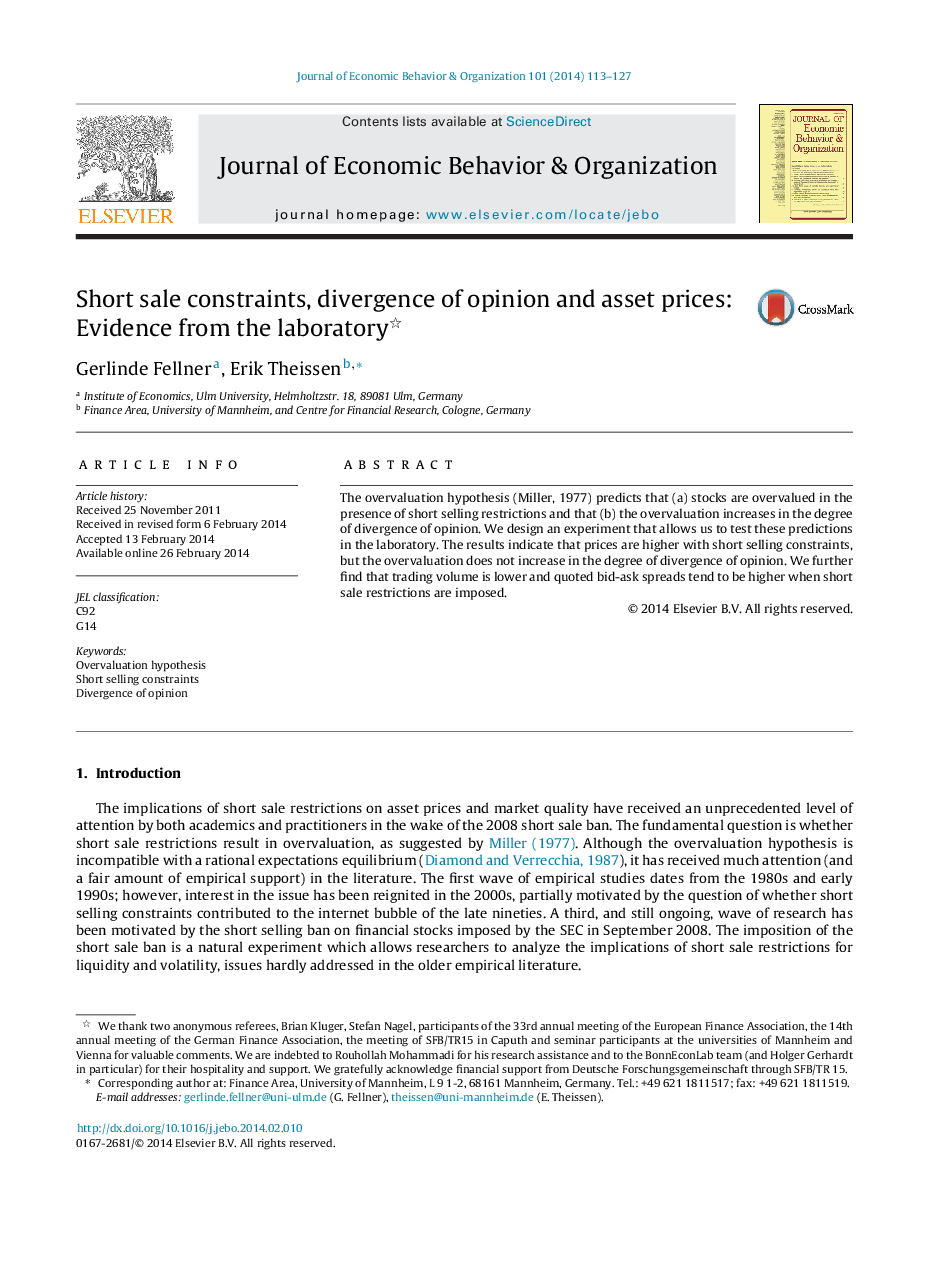| Article ID | Journal | Published Year | Pages | File Type |
|---|---|---|---|---|
| 7243553 | Journal of Economic Behavior & Organization | 2014 | 15 Pages |
Abstract
The overvaluation hypothesis (Miller, 1977) predicts that (a) stocks are overvalued in the presence of short selling restrictions and that (b) the overvaluation increases in the degree of divergence of opinion. We design an experiment that allows us to test these predictions in the laboratory. The results indicate that prices are higher with short selling constraints, but the overvaluation does not increase in the degree of divergence of opinion. We further find that trading volume is lower and quoted bid-ask spreads tend to be higher when short sale restrictions are imposed.
Keywords
Related Topics
Social Sciences and Humanities
Economics, Econometrics and Finance
Economics and Econometrics
Authors
Gerlinde Fellner, Erik Theissen,
